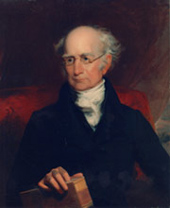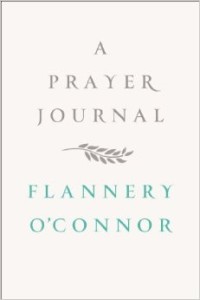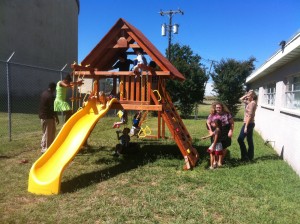Pastoral Backstory 09.26.13
September 26th, 2013
This backstory will take a while to review. So come back when you have some time to sit a spell, maybe with a cup of something hot.
 If you’re in a forest you instinctually look for a path through it. The forest itself commands your attention–the scenery might be breathtaking, the natural fecundity all around you mesmerizing–but at some point you’ll have to look for a way through and out of that forest. And the path through them will obviously have been cut and marked by those who’ve gone before you.
If you’re in a forest you instinctually look for a path through it. The forest itself commands your attention–the scenery might be breathtaking, the natural fecundity all around you mesmerizing–but at some point you’ll have to look for a way through and out of that forest. And the path through them will obviously have been cut and marked by those who’ve gone before you.
For the last few weeks these sermons on a vision of faithful presence have been trying to find a path through the forest of our life in Christ. We’re trying to see the theological forest for the trees.
But God hasn’t merely articulated the path in words; he’s blazed it in God the Son, and then clarified its route through those who’ve followed it themselves.
Sermons can articulate the path, but the church needs people who’ve walked (read: stumbled) the path so that the church might have guides for the journey.
For several weeks now, members of our present session have been meeting with two men–Jim Akovenko and Hugh Comer–in a time of training for the office of elder. In time we pray they will prevail in our denomination’s examination of their character and understanding of both Scripture and the work of an elder. But because these men might soon become your elders, we believe it’s incumbent upon us to help you understand two things:
- who these men are
- what it means for them to be your elders
To become more acquainted with these two men, we’d like you to make special effort to attend our 2nd hour Q&A time on October 13th and 20th. We will devote those two sessions to interviewing these elder candidates and then giving you an opportunity to ask just about anything. Each Sunday will have its own emphasis so we hope you will choose to attend both weeks. While we may be able to secure childcare during that 2nd hour on those weeks, we hope you’ll stick around even if it means you have your kids with you. These elders will be your kids’ elders’, too!
We want you to know and trust these men’s hearts. We want you to understand their sense of this office to which they sense a calling–both from within their own hearts and from the testimony of those who know them well. In all we want you to view them as
your elders, those to whom you will turn as men who’ve walked the path of discipleship for a while and who have learned a few things along the way.
But since many church-members’ perception of an elder is narrowly conceived as those who merely attend to the business of the church (buildings and budgets for example), we also want to deepen your sense of what an elder is responsible for, and how he is responsible for you (cf. Hebrews 13:7, 17).
 In the reading that’s formed part of our elder-training regimen this fall, we came across one Samuel Miller, a respected theologian and ruling elder in the 19th century. A quote of his led me to find the larger essay of which it was part. The essay is a letter really–to all believers about how they must understand the work of an elder and what it means to be in submission to them.
In the reading that’s formed part of our elder-training regimen this fall, we came across one Samuel Miller, a respected theologian and ruling elder in the 19th century. A quote of his led me to find the larger essay of which it was part. The essay is a letter really–to all believers about how they must understand the work of an elder and what it means to be in submission to them.
The essay is entitled “Letter to Christian Brethren concerning the work of ruling elders” (the 19th century loved long titles), and you can find a copy of it here.
Be patient with his highfalutin 19th century language. Inevitably you will find this description of an elder’s work unfamiliar–perhaps even off-putting for what might seem like an intrusiveness to his work. But before you relegate his profile of an elder to a bygone era, consider: if elders are commissioned to see to the maturing of the flock with which they’ve been entrusted (cf. Acts 20:28) then you will have to recognize the necessity of them taking a more than superficial interest in your whole lives. Whatever you learn from Miller’s letter you will discover that an elder’s work is far more than buildings and budgets. (You might even consult chapter 8 of our denomination’s Book of Church Order for more insight (and less antiquarian language).
Miller’s essay isn’t a comprehensive summary of what an elder is tasked with–really, what they’ve been privileged to take responsibility for. But it will surely expand your vision of an elder. We hope you will take the time to read his brief essay before you attend the sessions in October.
*****
 I’m looking forward to the release of Flannery O’Connor’s prayer journal next month. (I may have mentioned it during our Q&A a couple weeks back). The excerpts I’ve seen are so revealing I’d almost ache for her were she still alive. As they are her written words to God they are her in her most unvarnished self–full of disarming, self-effacing, even self-deprecating disclosures. They are in themselves O’Connor’s working out her salvation with fear and trembling.
I’m looking forward to the release of Flannery O’Connor’s prayer journal next month. (I may have mentioned it during our Q&A a couple weeks back). The excerpts I’ve seen are so revealing I’d almost ache for her were she still alive. As they are her written words to God they are her in her most unvarnished self–full of disarming, self-effacing, even self-deprecating disclosures. They are in themselves O’Connor’s working out her salvation with fear and trembling.
One quote laid me bare, as her words made herself bare before the One “with whom we have to do” (Hebrews 4:13, KJV):
“Dear God, I cannot love Thee the way I want to. You are the slim crescent of a moon that I see and my self is the earth’s shadow that keeps me from seeing all the moon. The crescent is very beautiful and perhaps that is all one like I am should or could see; but what I am afraid of, dear God, is that my self shadow will grow so large that it blocks the whole moon, and that I will judge myself by the shadow that is nothing. . . .”
For the last two weeks we’ve focused our attention on what it might mean to be faithfully present to God. This week we’ll finish this first phase of a vision of faithful presence by looking at John 14:15-31. The text is Jesus’ words of assurance to the ones He loves that though He’ll soon leave them, He won’t leave them alone. He will send “another helper,” the Holy Spirit of God. We’ve considered God’s promise to be present two weeks ago, and God’s purpose in being present last week. This week I think Jesus will help us explore the power for faithful presence. If O’Connor’s candor teaches me anything it’s that the first thing you have to know about being faithfully present to God is that you are entirely dependent on the very One who calls you to such. We need a Power not of us and yet among us and in us.
*****
Two items of community interest before I close (getcha self another cup of whatever’s now gone dry or cold)
 1. You may have noticed our preliminary efforts to develop a plan for the education of our school aged kids now that we have space and time in our new location. Two weeks ago we gave parents an opportunity to meet Lloyd and Breanna Elam, and Kevin and Marisol Gladding, two couples with both experience and interest in the nurture of the younger among us. Both couples have graciously agreed to help us take some first steps toward a more robust effort to nurture our children.
1. You may have noticed our preliminary efforts to develop a plan for the education of our school aged kids now that we have space and time in our new location. Two weeks ago we gave parents an opportunity to meet Lloyd and Breanna Elam, and Kevin and Marisol Gladding, two couples with both experience and interest in the nurture of the younger among us. Both couples have graciously agreed to help us take some first steps toward a more robust effort to nurture our children.
But it can’t–and it won’t–fall to them alone. Because it shouldn’t–given how every time we baptize a child the whole congregation takes a vow to aid in the nurture of that child.
So, as I’ll make special note during announcements this Sunday, the Session would have our whole community seriously consider participating in the nurture of our covenant children by volunteering time on a regular basis during the 2nd hour (the details of which to be hammered out in time) either as a teacher or assistant to that week’s contingent of help.
We’re literally on the front end of our development of this effort. We hope to form a committee soon that will evaluate prospective curricula, coordinate schedules, and pray for our children and our whole church’s responsibility for them. That can’t happen without many stepping up to illustrate only one example of being faithfully present to one another. We want to lean against the modern American instinct to outsource all efforts to the so-called “paid professionals.” At this fledgling moment in our community’s life, we want to create a culture in which all feel invested in the life and health of the church–just like the metaphor of the Body that the NT compares us to.
So you don’t have to wait until Sunday to respond to us. Whether your affinity is for teaching or caring, we want to hear from you and get the ball rolling.
2. And as a reiteration of a request from last week, with our new home we have new opportunities for service. One such need is for a crew of people willing to serve in the kitchen. Most Sundays we’ll only need help with preparing the coffee and cleaning up. But there will be other occasions for more extensive work. If you have a penchant for hospitality, email us your interest. We’ve already heard from some of you; we’d love to hear from more of you still.
*****
As He tells us to pray perseveringly, will you continue to pray for these…
- for wisdom for our session–both present and future–as it considers how to put this vision into concrete practice
- for our elder candidates, Jim Akovenko and Hugh Comer, during their time of training, and for their examination now slated for October 19th
- for our new relationship with Fairmeadows Baptist Church–that it would be mutually encouraging and edifying
- for Don and Helen Johnson in his ongoing battle with ALS
- for our covenant children as the Session considers how to both provide for their nurture and moreover to assist parents in that nurture
See you Sunday (and would love to see you on time at 9:30!),
Patrick
